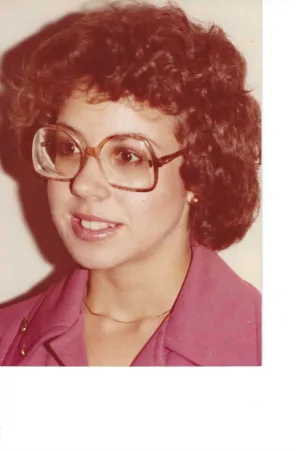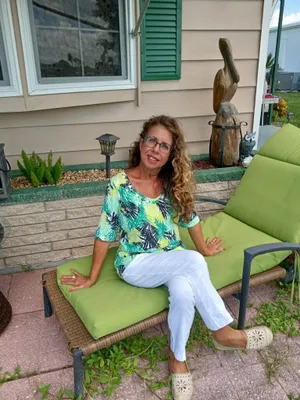Ted Bundy tried to kill her, but she survived. Here's the one thing she's sick of being asked.
Kathy Kleiner Rubin knows what it is like to endure trauma. In 1978, she survived serial killer Ted Bundy. He had escaped from a Colorado jail and made his way to Florida State University. On a cold January night, he saw the door to the Chi Omega sorority house had a busted lock. He killed two women while they slept and then attacked Kleiner Rubin and her roommate. They survived because a car headlight flashed in their room and spooked Bundy.
In the decades that followed, Kleiner Rubin accepted the traumatic night would always be part of her life story. She also learned that while some people were helpful with their support, others were harmful. Now, she has advice on what people should and shouldn’t say to trauma survivors.
Ted Bundy survivor in the spotlight
Kleiner Rubin remembers hearing the door to her room opening. Within seconds, Bundy bashed her head with an oak log. Her cheek ripped open, her jaw shattered in three places and she almost bit her tongue in half. She had months of physical recovery including multiple jaw surgeries.
But she survived. Bundy brutally murdered dozens of women in the 1970s, eventually confessing to at least 30 murders.
By the time Kleiner Rubin testified at Bundy’s televised trial in 1979, the country saw a poised young woman on the witness stand who appeared completely healed. Emotionally, she said she was far from it.

The trial meant her trauma was national news. The people closest to her didn’t always know what to say.
Her parents, for example, thought she would heal best if she didn’t talk or even think about the attack. But Kleiner Rubin said she needed to talk through all that had happened to her.
Now retired and living in South Florida, Kleiner Rubin recently published her memoir, "A Light in the Dark: Surviving More Than Ted Bundy," which also details how she survived childhood lupus and early onset breast cancer.
What not to say to a trauma survivor
If a loved one is recovering from a traumatic event, Kleiner Rubin said there is one question that people should never ask.
“‘Aren’t you over it yet?’” said Kleiner Rubin. “Because it makes the survivor think they are not getting better in time and that other people don’t want to listen anymore when there is still so much healing to be done.”
Survivors need to heal at their own pace, and Kleiner Rubin said it’s important to not suggest the person is failing because they are still processing what happened to them.
Jeffrey Dahmer series is gruesome.It was also No.1 on Netflix. What does that say about us?
If the person has to undergo medical treatment, Kleiner Rubin recommended not reminding them of the long road ahead. After undergoing chemotherapy at age 13 for lupus, she was devastated to learn in her early 30s that her breast cancer treatment plan included months of chemotherapy. She felt overwhelmed when people would remind her that she had seven more months or five more sessions remaining. It helped her visualize her recovery in small doses.
Kleiner Rubin also said it’s important to not make a survivor feel as though their support network has shrunk due to their misfortune. She never heard from her FSU friends after Bundy’s attack, and her mother encouraged her to just forget them.

“That was hurtful,” she said. “It hurt me that mama didn’t tell me that it would be OK and they will come around.”
Even though those former friends never did come around, Kleiner Rubin said she needed to process the attack and the loss of her friends separately and not all at once.
How to support a survivor
When Bundy was executed on Jan. 24, 1989, Kleiner Rubin watched the TV news coverage with her then-fiancé (now husband) at home. They had received updates from the state’s attorney who prosecuted the case, and Kleiner Rubin knew Bundy was gone well before it was announced on TV. But it didn’t seem real until she saw a hearse leave the Florida prison. She burst into tears and sobbed in her fiancé’s arms.
Kleiner Rubin said she cried for her two sorority sisters who died on the night she was attacked. And she mourned all the women and girls Bundy confessed to killing.
Her fiancé held her until she was ready to move on with her day. That, Kleiner Rubin said, was what she needed. She stresses that survivors sometimes need someone to hug them, hold their hand or just listen.
“My big thing is listening to what they have to say,” she said. “They might have a bad night and need to talk in the morning or they might start ruminating on something that happened a year ago.”
People might worry about what to say to a loved one in these moments, but Kleiner Rubin said the survivor likely isn’t waiting to hear something meaningful or profound. Instead, she said they likely just want to be heard.
And when the survivor does need reassurance, Kleiner Rubin suggested saying, "I’m here with you,’ and ‘this is not your fault.’"
And depending on what they endured, Kleiner Rubin added, they might need to hear that it’s not their fault that they survived and others didn’t.
“Someone else interjected themselves into their life,” she said. “It wasn’t their fault.”
Emilie Le Beau Lucchesi is an author and journalist. She's contributed to Discover Magazine, National Geographic, The New York Times, and The Atlantic. She lives in the Chicago area.
What we learned:Shocking revelations from Netflix's 'Conversations with A Killer: The Ted Bundy Tapes'

Disclaimer: The copyright of this article belongs to the original author. Reposting this article is solely for the purpose of information dissemination and does not constitute any investment advice. If there is any infringement, please contact us immediately. We will make corrections or deletions as necessary. Thank you.







